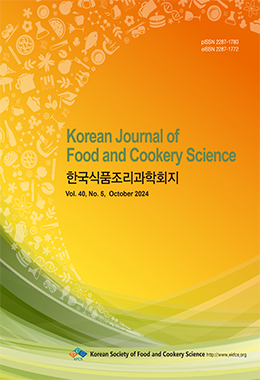Purpose: This study aimed to determine the perception of protein foods and intake patterns among MZ generation according to exercise performance. Methods: An online survey was conducted from February 5 to February 12, 2024, on 197 MZ generation adults selected using a random sampling method. The data were analyzed using cross-tabulation analysis, the t-test, and multinominal logistic regression. Results: The RE group had a higher frequency of consumption of meat(p<0.001) and high protein snacks (p<0.01) than the NE group. In terms of satisfaction, the RE group showed higher satisfaction than the NE group with respect to food effectiveness (p<0.001), taste (p<0.05), and reliability (p<0.01). In terms of recognition of high-protein foods, the RE group’s perception of high-protein foods was higher than that of the NE group in all except three questions. (p<0.05, p<0.01, p<0.001). The results of the multinominal logistic regression are as follows: In terms of awareness, the response to the question ‘I would be willing to try high-protein foods if they came out in a new form’ was found to be higher in the IE group than in the NE group (p<0.05). Also, an analysis of the frequency of intake showed that the consumption of meat (p<0.01) and health-functional foods (p<0.05) was higher in the RE group than in the NE group. Conclusion: Our findings contribute to understanding the MZ generation’s consumption of high-protein foods and their perception and satisfaction regarding these foods. These findings thus provide the basic data necessary for marketing, and a direction for developing high-protein foods by food companies targeting exercising consumers.




